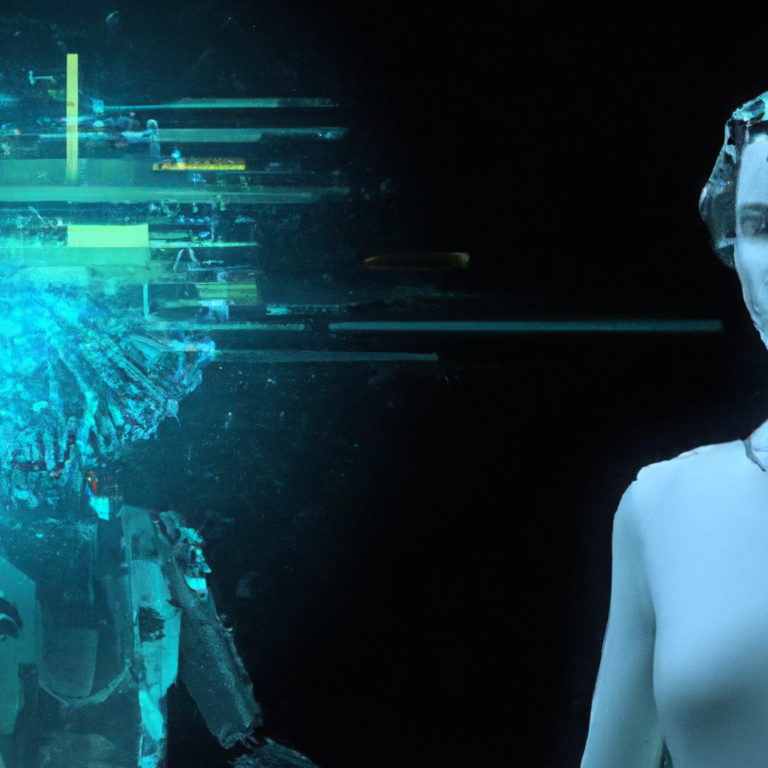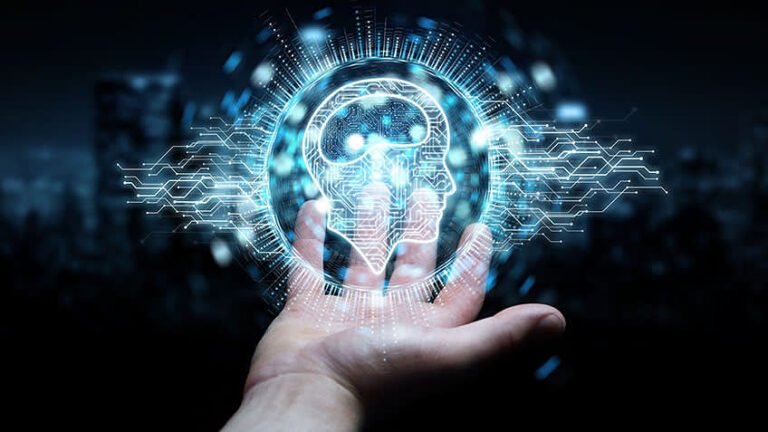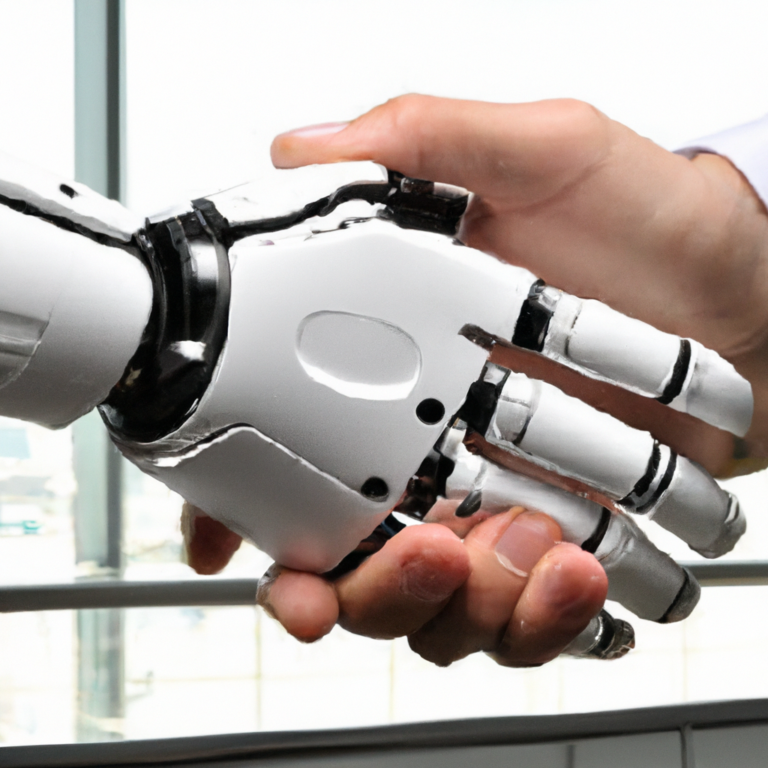AI And The Future Of Society: How Will AI Impact Society In The Long Term?
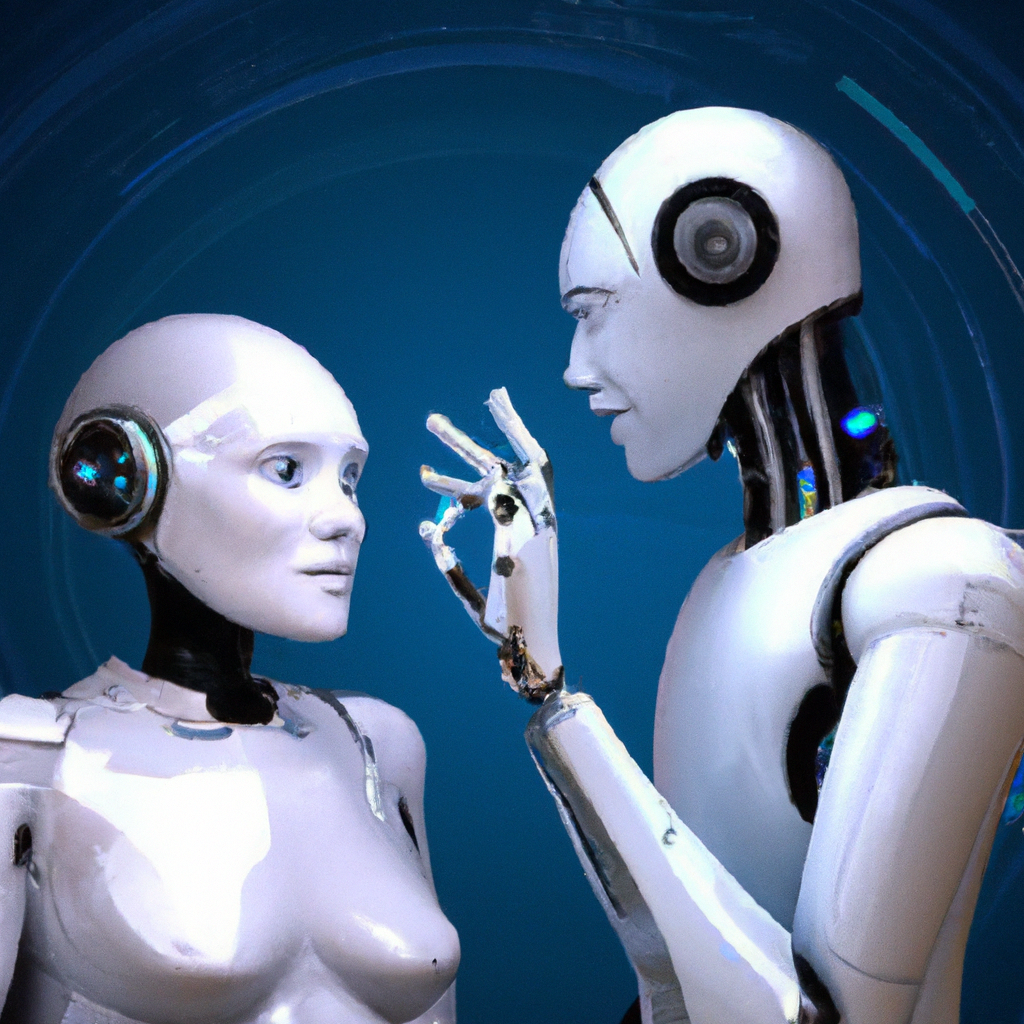
In this intriguing article, we will explore the fascinating world of AI and its potential impact on society in the long term. As artificial intelligence continues to advance and evolve at a rapid pace, its implications for our daily lives and the future of our society are becoming increasingly profound. From revolutionizing industries to reshaping our economy, AI has the ability to transform the way we live, work, and interact with the world around us. Join us on this journey as we delve into the potential consequences, challenges, and opportunities that AI may present for our society down the road. So, fasten your seat belts and get ready to embark on this thought-provoking exploration of AI’s future impact on society.
Role of AI in Society
Artificial Intelligence (AI) has become an integral part of our everyday lives. From voice assistants like Siri and Alexa to recommendation systems on streaming platforms, AI is seamlessly integrated into our daily routines. It has revolutionized the way we interact with technology and has made our lives easier and more convenient.
In the healthcare sector, AI is making significant strides. AI algorithms can analyze medical data and provide accurate diagnosis and treatment recommendations. It has the potential to transform the way diseases are detected and treated, leading to better patient outcomes and improved efficiency in healthcare systems.
Transportation is another area where AI is rapidly advancing. Self-driving cars and autonomous vehicles are becoming a reality, offering the promise of safer and more efficient transportation. AI is also being used in traffic management systems, reducing congestion and optimizing traffic flow. This technology has the potential to revolutionize the way we commute and travel.
Communication has been greatly enhanced by AI. Virtual assistants have become commonplace, able to understand and respond to natural language queries. AI-powered translation and interpretation tools enable us to bridge language barriers and connect with people from different cultures. Customer service has also been transformed, with AI chatbots handling customer inquiries efficiently and effectively.
AI has also found its place in education. It is being integrated into classrooms to personalize learning experiences for students. AI tutoring systems provide individualized feedback and support, helping students grasp complex concepts. As AI continues to develop, it will play a vital role in preparing students for the future, equipping them with the necessary skills for an evolving workforce.
In the business world, AI is revolutionizing processes and decision-making. Automation is streamlining business operations, increasing efficiency, and reducing costs. AI-powered data analysis tools enable businesses to gain valuable insights and make data-driven decisions. Customer behavior analysis allows companies to better understand their target audience and tailor their products and services accordingly.
Ethical Concerns of AI
While the advancements in AI bring numerous benefits, there are ethical concerns that need to be addressed. Job displacement is a significant concern, as automation and AI-driven technologies have the potential to render many traditional jobs obsolete. This raises questions about how society will adapt and provide alternative employment opportunities for those who are displaced.
Privacy concerns are also at the forefront of AI discussions. AI systems gather massive amounts of data, and there is a risk of that data being misused or falling into the wrong hands. It is essential to establish robust privacy frameworks and regulations to protect individuals’ personal information.
Bias and discrimination in AI algorithms is another ethical concern. If AI systems are not properly trained and validated, they can perpetuate societal biases or discriminate against certain groups. It is crucial to ensure that AI systems are fair and unbiased, promoting inclusivity and equality.
Autonomous weapons pose a significant ethical challenge. AI-powered weapon systems have the potential to make life-or-death decisions autonomously, raising ethical questions about the morality of delegating such decisions to machines. There is a need for international regulations and guidelines to ensure human control and accountability over such systems.
The lack of human control over AI systems is another area of concern. As AI becomes more sophisticated, there is a risk of losing human oversight and control. It is important to strike a balance between the benefits of AI and preserving human agency and decision-making.
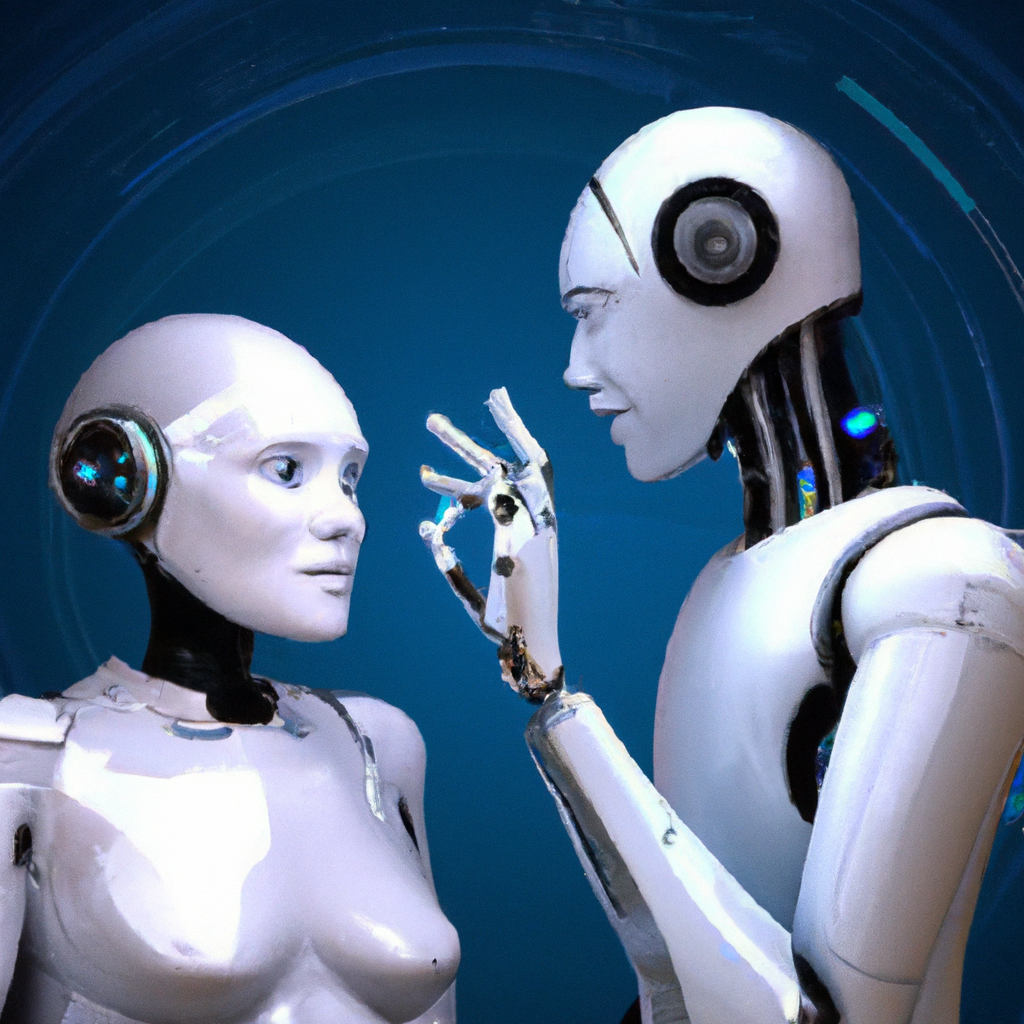
Economic Impact of AI
The widespread adoption of AI technologies is expected to have a profound economic impact. Automation of jobs is a double-edged sword. While it can lead to increased productivity and efficiency, it may also result in job displacement and unemployment. However, it is important to note that AI will also create new job opportunities, particularly in emerging industries such as AI development and implementation.
Income inequality is another economic concern. AI has the potential to concentrate wealth and power in the hands of a few, exacerbating existing inequalities. It is crucial to ensure that the benefits of AI are distributed equitably and that policies are in place to address income disparities.
The emergence of AI will also lead to the growth of new industries and economic sectors. AI-powered technologies and applications will create opportunities for innovation and entrepreneurship. This will drive economic growth and create new pathways for economic development.
Social Impact of AI
The social impact of AI is multifaceted. It has the potential to transform human-computer interaction, making technology more intuitive and natural to use. Voice assistants like Siri and Alexa have already changed the way we interact with our devices, and this trend is likely to continue.
AI also has the power to shape and redefine social norms. As AI becomes more ingrained in our everyday lives, it will influence our behaviors and expectations. It is important to consider the ethical implications and societal impact of these changes.
Society’s reliance on AI and technology is increasing. From relying on GPS navigation to using AI-powered recommendations for entertainment, we are becoming increasingly dependent on AI systems. It is crucial to ensure that AI is reliable and secure to avoid disruptions and potential harm.
The influence of AI on decision-making is another significant social impact. AI-powered algorithms and systems can make recommendations and decisions on our behalf. This raises questions about the transparency and accountability of these systems and the potential consequences of delegating decision-making to machines.
AI can also impact our relationships. From online dating apps that use AI algorithms to match potential partners to virtual assistants that provide companionship, AI is reshaping how we connect and form relationships. It is important to consider the social and emotional aspects of these interactions.
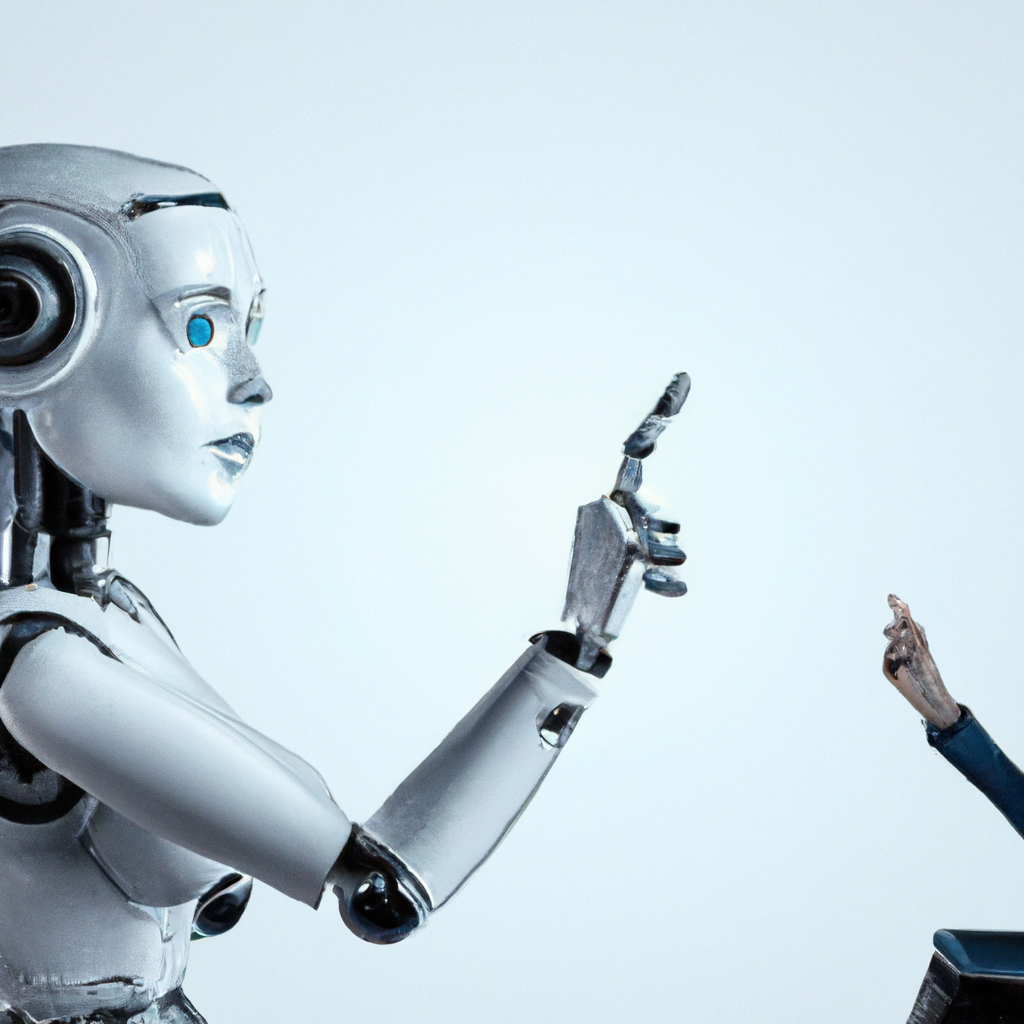
Education and AI
AI holds immense potential for transforming education. Integration of AI in classrooms can personalize learning experiences for students, tailoring content and pace to individual needs. AI-powered tutoring systems can provide personalized feedback and support, helping students overcome challenges and excel in their studies.
AI can also play a crucial role in preparing students for the future workforce. By identifying emerging skills and trends, AI can help educators design curricula that equip students with the necessary skills and knowledge. This will ensure that students are prepared for the jobs of tomorrow.
However, it is important to strike a balance between AI and human interaction in education. While AI can enhance learning experiences, it should not replace human teachers. The role of teachers in guiding and inspiring students is irreplaceable, and AI should be seen as a tool to augment their capabilities.
Furthermore, the integration of AI in education raises ethical considerations. It is crucial to ensure that AI systems used in educational settings are fair, unbiased, and respect students’ privacy. Policies and regulations should be in place to protect the rights and well-being of students.
Healthcare and AI
The impact of AI in healthcare is substantial and far-reaching. AI has the potential to revolutionize medical diagnosis and treatment by analyzing large amounts of patient data and identifying patterns that can lead to more accurate diagnoses and treatment plans. This can improve patient outcomes, reduce healthcare costs, and alleviate the burden on healthcare professionals.
Robot-assisted surgery is another application of AI in healthcare. Robots can assist surgeons, providing precise movements and minimizing the risk of human error. This can lead to safer and more efficient surgeries, reducing complications and improving patient recovery.
AI-powered health monitoring systems can track patients’ vital signs and detect anomalies in real-time. This can enable early intervention and proactive healthcare management, leading to improved patient outcomes and reduced hospitalizations.
AI is also enhancing the process of drug discovery and development. By analyzing large datasets and identifying potential drug candidates, AI can accelerate the discovery and development of new treatments. This has the potential to revolutionize the pharmaceutical industry and bring new therapies to market faster.
However, ethical considerations must be taken into account when implementing AI in healthcare. Patient privacy and data security should be prioritized to ensure that sensitive medical information is protected. Additionally, the ethical implications of relying on AI for life-altering medical decisions should be carefully considered.
Transportation and AI
The transportation sector is undergoing a significant transformation with the advent of AI. Autonomous vehicles are being developed and tested, promising safer and more efficient transportation. These vehicles have the potential to reduce accidents caused by human error and optimize traffic flow.
Efficient traffic management is another application of AI in transportation. AI algorithms can analyze real-time traffic data and make predictions to optimize traffic flow and reduce congestion. This can lead to shorter commute times, improved air quality, and a more sustainable transportation system.
Smart transportation systems, powered by AI, are being developed to integrate various modes of transportation seamlessly. This can provide commuters with real-time information and enable them to choose the most efficient and sustainable mode of transportation for their needs.
Reduced accidents and congestion due to AI in transportation can have a significant social impact. It can save lives, decrease travel time, and improve overall quality of life. However, there are also challenges and risks associated with the widespread adoption of autonomous vehicles, such as regulatory frameworks, cybersecurity concerns, and public acceptance.
Communication and AI
AI has transformed the way we communicate. Virtual assistants like Siri, Alexa, and Google Assistant have become a ubiquitous part of our daily lives, providing instant information and performing tasks on command. These AI-powered assistants use natural language processing to understand and respond to user queries effectively.
Translation and interpretation have also been revolutionized by AI. AI-powered tools can translate text and speech in real-time, enabling communication across language barriers. This has the potential to facilitate global communication and promote understanding among diverse cultures and communities.
Enhanced customer service is another area where AI has made significant contributions. AI chatbots are being used by businesses to handle customer inquiries and provide support. These chatbots can quickly and accurately address customer concerns, improving customer satisfaction and reducing response times.
However, the integration of AI in communication raises ethical considerations. Digital communication ethics, such as maintaining privacy and avoiding the spread of misinformation, should be upheld. It is important to strike a balance between the convenience and efficiency offered by AI and the ethical responsibilities of communication.
Business and AI
AI is reshaping the business landscape in numerous ways. Automation is streamlining business processes, increasing efficiency, and reducing costs. Mundane and repetitive tasks can be delegated to AI systems, allowing human employees to focus on higher-level tasks that require creativity and critical thinking.
Data analysis and decision-making are being greatly enhanced by AI. AI-powered tools can analyze vast amounts of data and provide valuable insights, enabling businesses to make data-driven decisions. This can lead to improved efficiency, better customer targeting, and increased competitiveness.
Customer behavior analysis is another area where AI is making a significant impact. AI algorithms can analyze customer data and predict buying patterns, enabling businesses to tailor their products and services to meet customer needs effectively. This can lead to improved customer satisfaction and increased sales.
Safer and more efficient business operations are facilitated by AI. From fraud detection to supply chain management, AI can identify anomalies and optimize processes, reducing risks and improving overall business performance. This has the potential to benefit businesses across various industries.
AI is also challenging traditional business models. It enables businesses to reimagine their products, services, and processes. By embracing AI, businesses can adapt to changing customer expectations and industry trends, fostering innovation and staying ahead of the competition.
AI and Creativity
AI is not just limited to analytical tasks; it can also play a role in creativity. The field of artificial intelligence in art is rapidly developing, with AI generating unique and thought-provoking artworks. AI algorithms can analyze patterns and create original pieces of art, challenging traditional notions of creativity.
Music and literature generated by AI are also gaining traction. AI can compose music based on given parameters and generate coherent and engaging narratives. This opens up new possibilities for the music and entertainment industries, blurring the lines between human and AI-generated content.
Design and creativity enhancement is another application of AI. AI-powered tools can assist designers in generating ideas, creating prototypes, and optimizing designs. This can accelerate the design process and spark new creative discoveries.
Intellectual property issues arise when AI generates creative works. Questions of ownership and copyright need to be addressed, as the contributions of AI in the creative process become more pronounced. Striking the right balance between AI-generated creativity and human artistic expression is a complex challenge.
Human-AI collaborations are becoming increasingly common in creative fields. Artists, musicians, and writers are collaborating with AI systems to explore new creative possibilities and push the boundaries of traditional artistic practices. This symbiotic relationship between humans and AI has the potential to redefine creativity in the future.
In conclusion, AI plays a significant role in shaping society across various domains. From everyday life to healthcare, transportation, communication, education, and business, AI has the potential to revolutionize how we live and work. However, ethical considerations, economic impacts, and social implications must be carefully addressed to ensure that the benefits of AI are maximized while mitigating any potential risks. As AI continues to evolve, it is essential to strike the right balance between innovation and responsible implementation, ensuring a future where AI enhances human capabilities and improves society as a whole.
Want to write articles like us? Get your copy of AI WiseMind here!



